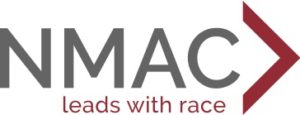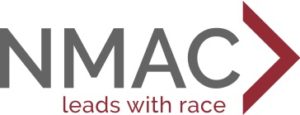AIDS 2020 Community Recap
USCHA Best Practices for Being a Virtual Presenter
NMAC Launches “ESCALATE” Program to Fight HIV Stigma
NMAC will launch the new “ESCALATE” (Ending Stigma through Collaboration And Lifting All To Empowerment) program. Funded by a cooperative agreement with the Health Resources and Service Administration (HRSA), “ESCALATE” will work to reduce stigma against People Living With HIV at the individual, organizational, and systemic levels.
 “ESCALATE” will train participants in the 57 jurisdictions identified in “Ending the HIV Epidemic: A Plan for America (EHE)” to recognize and address HIV stigma with a particular focus on transgender/gender nonconforming individuals, men who have sex with men, and the Black/African-American community. NMAC will work in partnership with NORC, Abt Associates, TRX Development and the University of Chicago.
“ESCALATE” will train participants in the 57 jurisdictions identified in “Ending the HIV Epidemic: A Plan for America (EHE)” to recognize and address HIV stigma with a particular focus on transgender/gender nonconforming individuals, men who have sex with men, and the Black/African-American community. NMAC will work in partnership with NORC, Abt Associates, TRX Development and the University of Chicago.
“Stigma remains a major obstacle to HIV prevention, treatment, and care,” said NMAC Executive Director Paul Kawata. “‘Any plans to end the HIV epidemic, whether national or local, must address that stigma in order to be successful. Using our deep experience in training community leaders, NMAC will use the ESCALATE program to educate communities how to be able to see stigma when it happens and provide tools to address it when it does. It’s a huge task but one that is absolutely necessary.”
“This new HIV stigma reduction programming will help NMAC lay the foundation towards ending the HIV epidemic by year 2030 as outlined in the EHE,” said Charles Shazor, Jr., Associate Program Manager in the NMAC’s Center to End the Epidemics. “HIV stigma is a primary contributor to health gaps and disparities around access to HIV treatment and prevention within communities of color. The ESCALATE partnership will build a newly combined force of national HIV community leaders geared towards HIV stigma elimination in the 57 jurisdictions included in EHE.”
“Stigma is a pressing public health issue. It creates systemic and personal barriers for people living with HIV, which can prevent accessing needed medical care and services that improve health outcomes and overall quality of life,” said Jane E. Fox, Principal Associate, Division of Health and Environment at Abu Associates. “Abt looks forward to teaming with NMAC and others on this timely and pivotal initiative.”
“The University of Chicago is excited to lead the implementation science advisory team that will work to support, strengthen, and sustain stigma-reduction efforts in the various jurisdictions,” said Dr. Russell Brewer, Research Associate Professor at the University of Chicago, Medicine and chair of ESCALATE’s Implementation Science Advisory Team.
NMAC leads with race to urgently fight for health equity and racial justice to end the HIV epidemic in America. Since 1987, NMAC has advanced our mission through a variety of programs and services, including: a public policy education program, national and regional training conferences, a treatment and research program, numerous electronic and print materials, and a website: www.nmac.org. NMAC also serves as an association of AIDS service organizations, providing valuable information to community-based organizations, hospitals, clinics, and other groups assisting individuals and families affected by the HIV epidemic.
###
NMAC to “ELEVATE” Training for PLHIV in HIV Workforce
NMAC has been awarded a cooperative agreement from the Health Resources and Services Administration (HRSA) to launch “ELEVATE” (Engage Leadership through Employment, Validation, and Advancing Transformation & Equity) for People Living with HIV.
 “ELEVATE” will be a four-year national training program for people living with HIV (PLHIV) integrating five of HRSA’s community programs. ELEVATE will prepare PLHIV within planning bodies, advocacy actions, and the HIV workforce to be meaningfully engaged and central to decision-making. PLHIV will be supported to earn leadership roles. The program will focus on residents of the 57 jurisdictions identified in the federal plan to End the HIV Epidemic. NMAC will operate “ELEVATE” in partnership with JSI Research & Training Institute, Inc., The Association of Nurses in AIDS Care, and the Latino Commission on AIDS.
“ELEVATE” will be a four-year national training program for people living with HIV (PLHIV) integrating five of HRSA’s community programs. ELEVATE will prepare PLHIV within planning bodies, advocacy actions, and the HIV workforce to be meaningfully engaged and central to decision-making. PLHIV will be supported to earn leadership roles. The program will focus on residents of the 57 jurisdictions identified in the federal plan to End the HIV Epidemic. NMAC will operate “ELEVATE” in partnership with JSI Research & Training Institute, Inc., The Association of Nurses in AIDS Care, and the Latino Commission on AIDS.
“From the moment the federal plan was announced, NMAC has believed that it could be a tremendous opportunity to hire people from affected communities into professional positions,” said NMAC Executive Director Paul Kawata. “‘ELEVATE’ will help make that opportunity into reality by giving potential job candidates the tools they need to be hired and succeed. We look forward to working with our constituents to help them make a difference in their communities.”
“We cannot say it enough times that meaningful engagement of people living with HIV is mandatory if we truly are committed to ending the epidemic,” said Ace Robinson, Director of the NMAC’s Center to End the Epidemics. “The vast majority of people living with HIV are racial/ethnic minorities who face a myriad of systemic societal ills in addition to HIV-related stigma. We must uplift these individuals by centering them on creating and implementing solutions. ELEVATE will help us all reach our common goal of ending the HIV epidemic.”
“ELEVATE” is modeled on NMAC’s Building Leaders of Color (BLOC) program and other training programs sponsored by HRSA including: JSI’s “Community HIV/AIDS TA Training (Planning CHATT)” and “The ACE TA Center’s In It Together Initiative;” the Center for Quality Improvement and Innovation’ s “Training Consumers on Quality Plus;” and Boston University School of Social Work’s “Improving Access to Care: Using Community Health Workers to Improve Linkage and Retention in Care (Among People of Color).”
“JSI is excited to build on our work designing and implementing Planning CHATT, as well as the ACE TA Center’s In It Together initiative, to continue to elevate community voices and enhance community members’ ability to take an active role in health care access and planning,” said Mira Levinson, Co-Director, Center for HIV & Infectious Diseases at JSI Research & Training Institute, Inc. “Our team is looking forward to applying our experience, passion, and commitment to health literacy to the continued evolution of these training resources.”
Engaging the HIV workforce to ensure that PLHIV are supported as both colleagues and patients will be central to the success of ELEVATE.
“The Association of Nurses in AIDS Care (ANAC) is looking forward to being a partner in the ELEVATE program, an important contribution to the success of the Plan to End HIV in the US,” said Carole Treston, Executive Director of the Association of Nurses in AIDS Care. “The engagement and leadership of PLWHIV in the HIV workforce is critical to ending the epidemic and nurses have an important role in supporting their training and employment. We are proud to be part of this cooperative agreement led by NMAC and HRSA, along with JSI and Latino Commission on AIDS.”
NMAC leads with race to urgently fight for health equity and racial justice to end the HIV epidemic in America. Since 1987, NMAC has advanced our mission through a variety of programs and services, including: a public policy education program, national and regional training conferences, a treatment and research program, numerous electronic and print materials, and a website: www.nmac.org. NMAC also serves as an association of AIDS service organizations, providing valuable information to community-based organizations, hospitals, clinics, and other groups assisting individuals and families affected by the HIV epidemic.
###
Jobs Are Racial Justice
The Centers for Disease Control and Prevention (CDC) last week announced the distribution of $109 million in new funding to the 57 jurisdictions that were prioritized for the Ending the HIV Epidemic (EHE) efforts. Since their 2020 EHE budget was $140 million, that means $31 million stayed at the CDC. NMAC is calling for transparency for how CDC intends to use this money. While we have no reasons to be concerned, CDC has not always been transparent in how it spends its HIV funds.
 Transparency is important because too many people don’t trust people in power, particularly people in government. Black Lives Matter is calling for a new accountability when spending the public’s money. If we are going to build an HIV movement that is committed to racial justice, then it starts with being transparent about the money. Money is power and we need to monitor how HIV funds are being spent.
Transparency is important because too many people don’t trust people in power, particularly people in government. Black Lives Matter is calling for a new accountability when spending the public’s money. If we are going to build an HIV movement that is committed to racial justice, then it starts with being transparent about the money. Money is power and we need to monitor how HIV funds are being spent.
We also need to get the money out the door because community is hurting. To my friends at the targeted health departments, please get the money to community as quickly as you can. I don’t need to tell you that people are hurting. This new money comes just as America is falling into an economic tsunami. These millions of dollars should translate into thousands of new jobs. With unemployment hovering at 10%, it matters.
 Just as I requested that the CDC be transparent with the money they are keeping, I also think it is important for health departments to be transparent. While the vast majority are great, there are some health departments that keep too much of the money. After all these years fighting HIV, we know that community, particularly people living with HIV/AIDS, are core to the solution.
Just as I requested that the CDC be transparent with the money they are keeping, I also think it is important for health departments to be transparent. While the vast majority are great, there are some health departments that keep too much of the money. After all these years fighting HIV, we know that community, particularly people living with HIV/AIDS, are core to the solution.
To all of the community-based organizations and health centers who are getting new funding to end the epidemic, whom you hire matters. NMAC hopes you will hire staff from the communities that are hardest hit by HIV. Black Lives Matter is a fight for racial justice and health equity. You can stand in solidarity with the struggle by hiring people from the struggle. Racism is real and our movement has the opportunity with these new jobs to change lives and to end the HIV epidemic.
Our staffs are watching, boards are concerned, donors want to know how we are responding to Black Lives Matter, and people living with HIV want us to do the right thing. While it’s not enough money, $109 million is a start. All of our jobs are to make sure the money is going to where it can have the largest impact in the communities hardest hit by HIV. We know how to end the HIV epidemic, but do we have the will power and the money to make it happen?
August 13th Webinar with Raniyah Copeland
 Nearly 250 people have registered for our August 13th Webinar with Raniyah Copeland from the Black AIDS Institute. The webinar is at 1:00 PM (Eastern)/10 AM (Pacific). There is still time to register. My staff loves BAI. They are always going on about their cutting-edge programs. Rather than be threatened by this love affair, I thought it would be important to support staff and invite Raniyah to the August 13th webinar to talk about BAI’s special sauce. I’ve also asked her to talk about what the Black Lives Matter movement means to our efforts to end the HIV epidemic.
Nearly 250 people have registered for our August 13th Webinar with Raniyah Copeland from the Black AIDS Institute. The webinar is at 1:00 PM (Eastern)/10 AM (Pacific). There is still time to register. My staff loves BAI. They are always going on about their cutting-edge programs. Rather than be threatened by this love affair, I thought it would be important to support staff and invite Raniyah to the August 13th webinar to talk about BAI’s special sauce. I’ve also asked her to talk about what the Black Lives Matter movement means to our efforts to end the HIV epidemic.
NMAC

USCHA Virtual Exhibiting
Youth Initiative 1 2020
Youth Initiative 2 2020
Declare Racism a Public Health Crisis
Below is a letter sent by the Federal AIDS Policy Partnership to Dr. Robert Redfield, Director of the Centers for Disease Control and Prevention:
July 30, 2020
Robert Redfield, MD
Director
Centers for Disease Control and Prevention
1600 Clifton Road NE
Atlanta, GA 30329
Dear Dr. Redfield,
 As leaders in the public health community, the 38 organizations below stand in solidarity with the over 1,200 current Centers for Disease Control and Prevention (CDC) employees who signed this letter to the agency’s senior leadership. Per their request, we ask you to:
As leaders in the public health community, the 38 organizations below stand in solidarity with the over 1,200 current Centers for Disease Control and Prevention (CDC) employees who signed this letter to the agency’s senior leadership. Per their request, we ask you to:
1. Declare racism a public health crisis in the United States;
2. Increase Black representation among senior CDC leadership and diversify the talent pipeline for future leaders;
3. Acknowledge and take immediate, direct action to address CDC’s toxic culture of exclusion and racial discrimination;
4. Dismantle the visible and invisible barriers to career advancement for Black employees;
6. Make implicit bias training and cultural sensitivity education mandatory for all CDC employees; and
7. Resolve pending EEO cases of racial discrimination.
We must hold our Federal partners accountable to the same demands we ask of communities across this country. The time is now to demand and expect change from our Federal partners. We have to address the structural barriers that keep people out of care and services that could improve their health outcomes. This is built on trust and accountability. We know the CDC understands this as its research and grants require external actors to outline how they are going to work with communities and affected groups. However, this analysis and reflection seem to be absent from their internal works. Long-term public health accountability includes diversifying the workforce, but also supporting the diverse workforce currently in place comprised of those directly impacted by systemic racism. Accountability strategies must include listening to, prioritizing, and operationalizing responses to the concerns of public health professionals of color. The time and resources spent advocating for equitable working conditions delay targeted and culturally relevant public health responses and further devalue Black and Brown lives. The consistent need for advocacy places a burden and negative mental health impact on public health professionals of color, who are often expected to persuade institutions to respond appropriately.
As public health organizations, we must also actively work to dismantle systems of racism, discrimination, prejudice, health inequity, and stigma within our own organizations and communities. We must continue to focus our work on addressing social determinants of health; we must continue to call on the Administration and Congress to invest in public health infrastructure and preserve and expand safety nets; and we will continue to fight for accessible and equitable health care, housing, education, and employment. It is the responsibility of public health professionals, including the organizations signed on, to center anti-racism and health equity in our own work and to foster and demand that swift action be taken.
The urgency of immediate action and the need to center anti-racism efforts in our public health responses is highlighted by the COVID-19 pandemic that is disproportionately impacting Black lives. Communities of color in the U.S. are also disproportionately impacted by HIV, STDs, and hepatitis. African Americans, more than any other racial/ethnic group, continue to bear the greatest burden of HIV in the U.S. Recent COVID-19 data shows that Black communities in the U.S. are experiencing higher rates of hospitalization and death compared to whites –exacerbated by many of the same health disparities that impact the HIV care continuum.
As your public health partners, it is critical that CDC address these concerns. We are committed to working collaboratively with CDC to address them. If you have any questions, please contact the FAPP co-chairs, Kathie Hiers at kathie@aidsalabama.org or Mike Weir at mweir@NASTAD.org.
CC: Jonathan H. Mermin, MD, MPH, CDC/NCHHSTP
Sincerely,
ADAP Advocacy Association
Advocates for Youth
African American Health Alliance
AIDS Action Baltimore
AIDS Alabama South, LLC
AIDS Foundation of Chicago
AIDS United
American Academy of HIV Medicine
Amida Care
APLA Health
AVAC
Black AIDS Institute
CAEAR Coalition
Cascade AIDS Project
Center for Health Law and Policy Innovation
Community Access National Network (CANN)
Cush Health Impact
Food is Medicine Coalition
GLMA: Health Professionals Advancing LGBTQ Equality
God’s Love We Deliver
Health GAP
Health Services Center
HealthHIV
Human Rights Campaign
NASTAD
National Black Gay Men’s Advocacy Coalition
National Coalition of STD Directors
National Working Positive Coalition
NMAC
North Carolina AIDS Action Network
Positive Women’s Network-USA
Prevention Access Campaign
San Francisco AIDS Foundation
Southern AIDS Coalition
Southern Black Policy and Advocacy Network
The AIDS Institute
The Well Project
Treatment Action Group